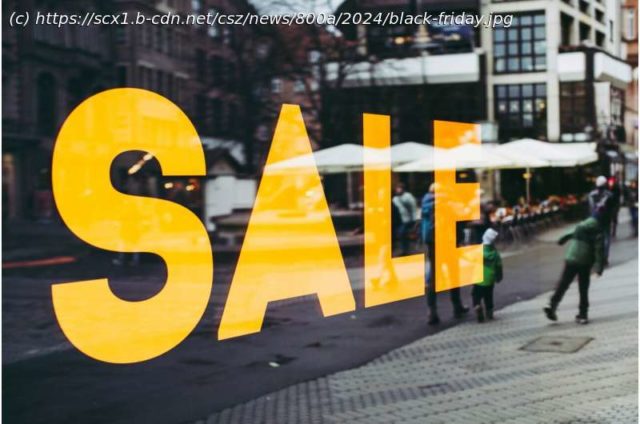On November 29, American shoppers will rush to malls and retail stores for the day known as «Black Friday,» the unofficial start of the holiday shopping season. Falling annually on the Friday after Thanksgiving, the event generates billions of dollars for the U.S. economy, topping out last year at $9.8 BILLION. In addition to the end-of-week bargains, the discounts and deals now extend to the weeks before and after Black Friday, growing the potential for revenue.
On November 29, American shoppers will rush to malls and retail stores for the day known as «Black Friday», the unofficial start of the holiday shopping season. Falling annually on the Friday after Thanksgiving, the event generates billions of dollars for the U.S. economy, topping out last year at $9.8 BILLION. In addition to the end-of-week bargains, the discounts and deals now extend to the weeks before and after Black Friday, growing the potential for revenue.
With the economy a hot button issue in 2024, a great deal of focus may fall on Black Friday sales as a measurement of the country’s economic health and shoppers’ faith in their financial standing.
Marshall News spoke with Lars Perner, associate professor of clinical marketing and a Black Friday expert, about 2024 Black Friday, the economic factors that affect revenue, and how the retail holiday has changed over the last five years.
I think it’s probably more of an indicator of the way that economic health is perceived. There’s still a perception among much of the population of heavy inflation. Inflation is much more under control than most people believe at the moment.
Part of the problem is that the inflation has been particularly apparent in certain hot button areas like food. Even that is probably more under control right now, but there’s still that perception. And it’s very difficult to make any sense out of the economy right now. We don’t know what Donald Trump is actually going to follow through on.
Obviously, if he were to impose the large tariff, especially on Chinese products, that would have an immeasurable effect. A lot of people may be a bit ambivalent about what’s going on, so I think that certainly Black Friday sales will reflect, to a large extent, the perception of the state of the economy, but not necessarily the actual health of the economy.
The other thing to realize here is that we can talk about the economy as a whole, but the reality is that it’s made up of a lot of people who have experienced very different situations. Even though it’s been a while since the COVID-19 pandemic, we’re still in the aftermath. During COVID, some people were able to save up a lot of money, but there weren’t as many opportunities to spend.
Other people’s savings were severely depleted, and different people have been affected differently by inflation and other factors. Even though the economy currently is fairly strong, there are still a lot of people who are suffering and are having difficulty making ends meet from year to year.
I think that it’s complicated because during the pandemic, opportunities to spend were limited. A lot of people engaged in what we might call «compensatory spending» afterwards to catch up. However, at the same time, when things were more readily available, some people were concerned about inflation. So there were somewhat contradictory signs in the economy.
But generally, I think people are driven to a large extent by their confidence in the economy, and there might be specific factors.
Домой
United States
USA — IT Black Friday, the economic environment and the evolution of America's retail holiday






